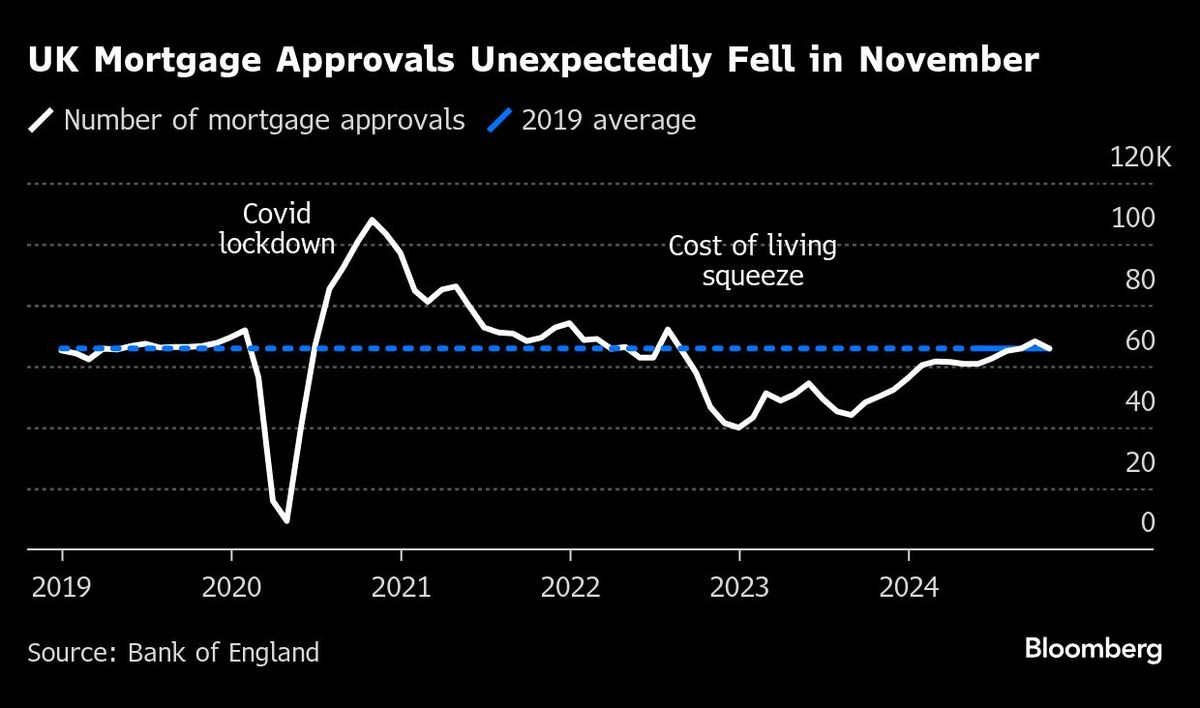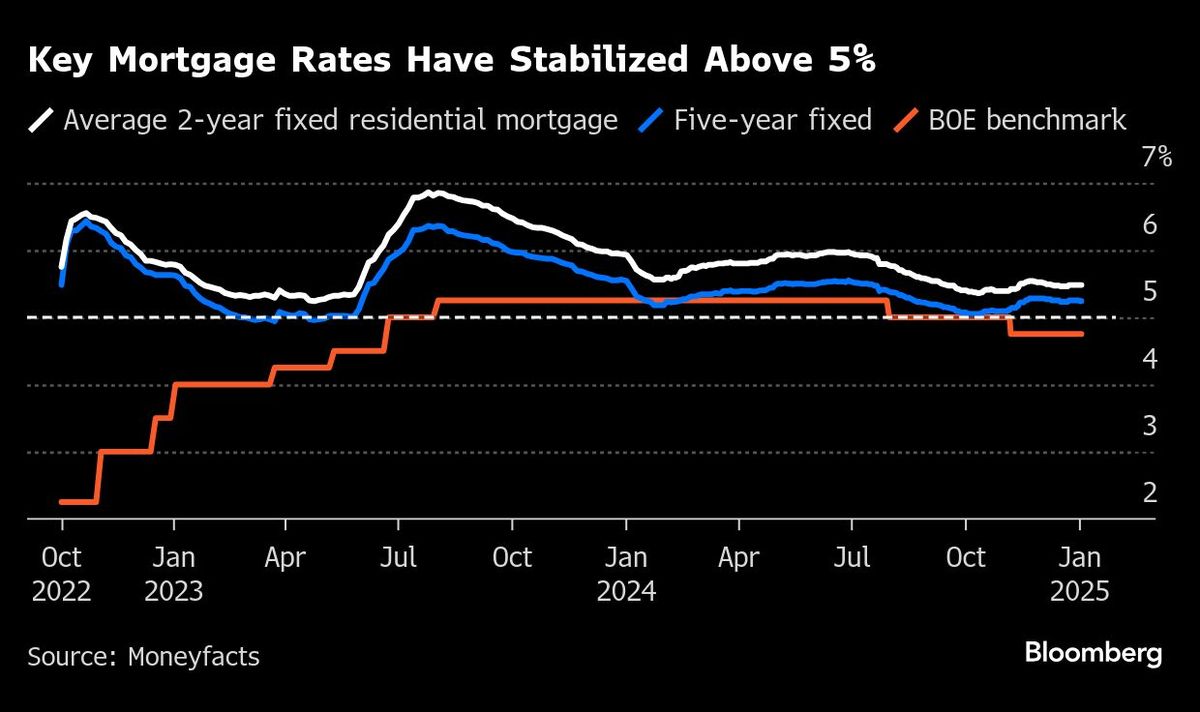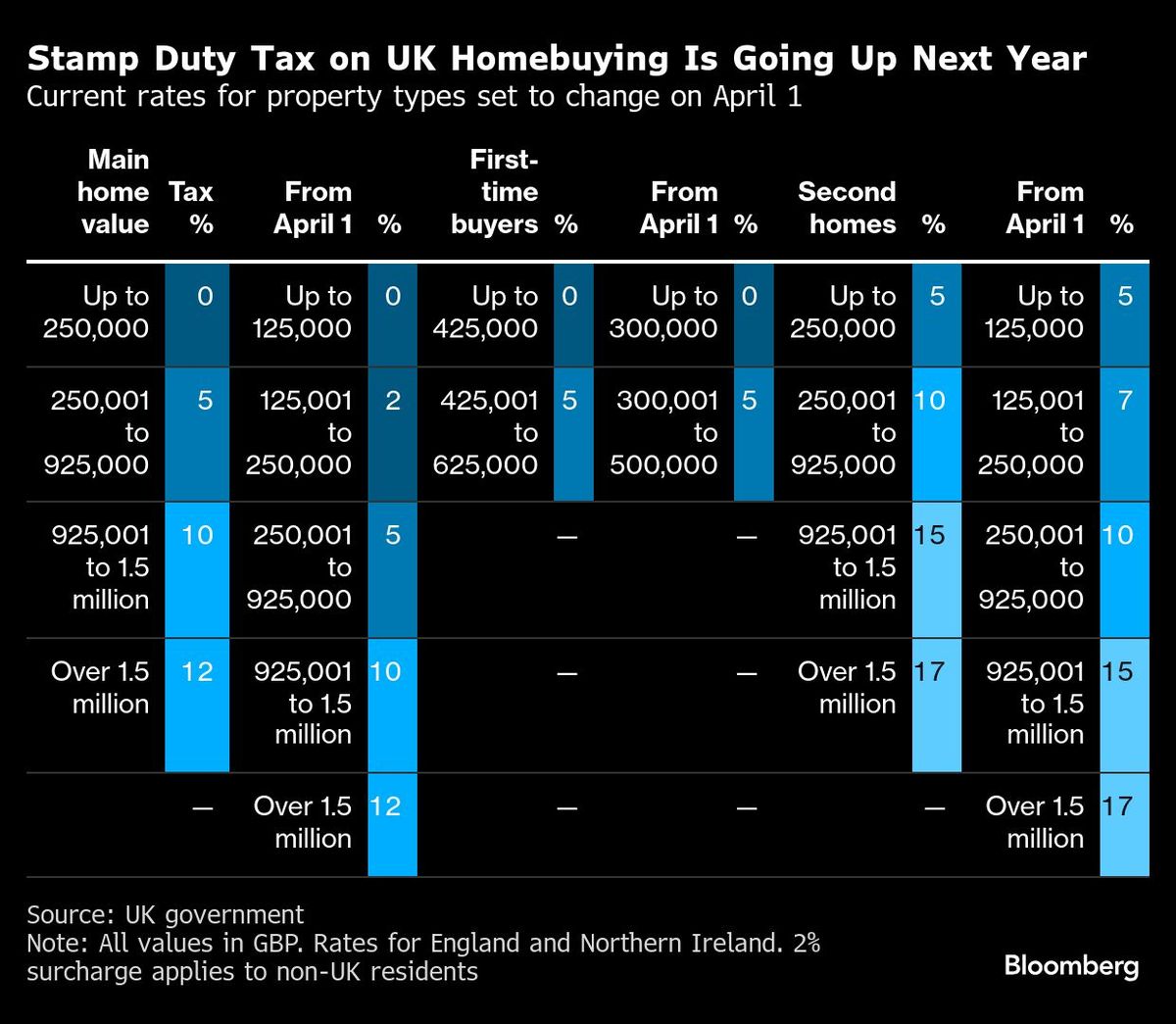
An estate agent's office in Dorking. Bank of England (BOE) data published on Friday showed Banks and building societies gave the green light to 65,720 mortgages in November, down from a revised 68,129 the previous month.
(Jan 3): Mortgage approvals in the UK dropped to the lowest level since August, in a sign that higher borrowing costs may be starting to weigh on home-buyers’ ambitions.
Banks and building societies gave the green light to 65,720 mortgages in November, down from a revised 68,129 the previous month, according to Bank of England (BOE) data published on Friday. Economists had expected approvals to increase to 68,700.
The recovery in the housing market remains vulnerable to affordability shocks. Mortgage rates edged up after Labour’s fiscally-stimulative Oct 30 budget triggered predictions of slower cuts from the BOE. In the first set of BOE credit data from the month after the budget, consumer borrowing also fell to its lowest level since June.
“The impact of higher interest rates without doubt has had a profound impact across the housing market,” said Nathan Emerson, chief executive officer of Propertymark, a membership group for estate agents. “Consumers need to feel a degree of confidence within their financial position to approach the buying and selling process.”
The sector has proved relatively resilient, however. A separate report from lender Nationwide on Thursday showed house prices edging closer to a record high. House prices ended the year 4.7% above the level seen in December 2023, the lender said.
Stamp duty
Come April, prospective buyers will face lower thresholds for paying stamp duty, as well as higher rates for second homes. That’s encouraging some sellers to take advantage of strong demand before the tax rises come into effect, pushing up the number of sales. Yet analysts are warning that demand could dry up quickly after an initial flurry of transactions.
Mortgage rates have crept higher following the budget announcement on Oct 30. The two- and five-year swap rates, used to price most mortgage products, rose to around 4.2% from 3.7% in mid-September.
That’s likely to hit demand in the coming year. Even if house prices stay unchanged, mortgage payments as a share of household income would fall slower than expected, according to Bloomberg Economics.
Households are also turning more cautious with their spending, avoiding big-ticket purchases, as they brace for lower wage gains and potential job cuts after the government increased a major payroll tax.
Uploaded by Felyx Teoh
- Malaysia won’t retaliate, will negotiate with US on tariffs — Miti
- Glovemakers rebound as investors see competitive advantages
- Thailand’s richest man picks bad day to debut flagship firm
- Vietnam in the eye of US tariff storm; Asian markets tumble
- Malaysia's semicon firms brace for future US action after dodging tariffs
- Ho Hup sells Bukit Jalil office units for RM13 mil in related-party transaction
- US services index falters as employment shrinks most since 2023
- US labour market calm ahead of tariffs storm
- TNB announces 100% electricity bill rebate for Putra Heights fire victims
- Wall Street plunges as Trump tariffs trigger recession fears



